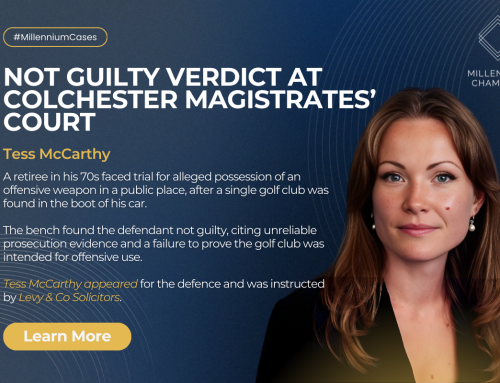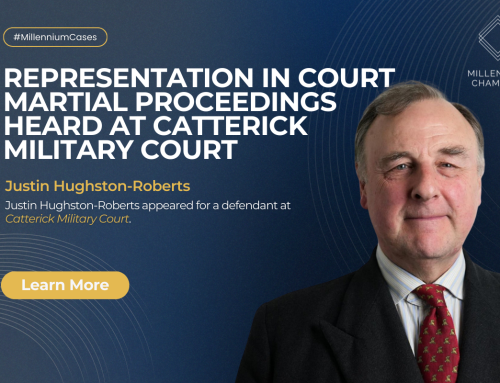Are you released under investigation?
Are you on police bail?
How can we help?
It is not uncommon for the police to release a suspect under investigation after a formal interview under caution rather than formally bail them to return. There is a big difference between the two. Being on bail means that a suspect is given a specific time and date in the future to return. That comes with an expectation that some progress will be made, with a decision made by a specific time. But sadly, that expectation is not always met. The Police are so overworked and overstretched that bail dates are frequently moved as investigations take much longer. Such delays create uncertainty and considerable distress in some cases. Delays can impact upon every aspect of someone’s life. Work can be disrupted, social lives impacted, and, in some cases, families destroyed. Reputations can be irreparably damaged.
In bail cases, if the police do not progress a case satisfactorily within three months, they must apply for extensions. Two further extensions are permitted. Approval from a police inspector is required for an extension from 3-6 months, and a superintendent’s approval is needed for an extension between 6-9 months. For an extension over nine months, the police must formally apply to the Magistrates Court to justify why any bail extensions are needed. These are critical hearings. There is an opportunity for an individual to challenge the police over how they investigate and the time it takes. This is where having competent representation can assist. The police will be required to state why an extension to the bail is needed in a document. The individual on bail, preferably with an advocate, has a real opportunity to find out what is happening and to challenge the police over any unnecessary or unreasonable delays. Instructing a barrister from chambers will mean that a response to the application can be drafted, and after that, assisting by attending court to make representations. The Magistrates invariably grant the police their requests, but they are not always given the necessary time. Much will depend on the adverse impact of being on bail and the extent to which the police are acting reasonably in investigating the case.
To avoid the constraints of having to work to deadlines, it is now common for the police not to bail a suspect (with or without conditions) but instead to simply release them under investigation, referred to as being ‘released under investigation’ (RUI).
Unlike being on bail, being released under investigation has no time limits or conditions. This frequently leaves the accused and alleged victims in considerable limbo with no updates on their case for an unlimited time. The ‘not knowing’ can devastate and negatively impact all involved in their work and domestic lives. Such cases can go on for years. It’s an all too easy option for the police, who can take their time over the investigation with little or no scrutiny. The proactive lawyer will not just let this happen. Frequent updates should be requested from the investigating officer, who should not be permitted just to let time go by. Representations can be made to the relevant police force if the delays are considered unreasonable or unnecessary to ensure the investigation progresses correctly.
The individual concerned will have so many unanswered questions when simply under investigation. Can you travel? Can you live and sleep anywhere you want? Will being RUI show up on a DBS check? Can the police keep on to my property, such as my phone, laptop or clothing? How can I protect my reputation?
The uncertainty and anxiety of being RUI place a considerable burden upon someone even though no charges have been brought.
One crucial aspect for a suspect to consider is how the defence can assist the police with its investigation. This means providing the police with potential lines of enquiry that are known to exist that will help speed up an investigation. Deciding whether this is a reasonable step to take requires careful consideration. It is considered sensible to take legal advice before approaching the police.
Millennium Chambers recognises the profound impact of facing the prospect of criminal prosecution. We work very closely with reputable Solicitors, and together we can help.




